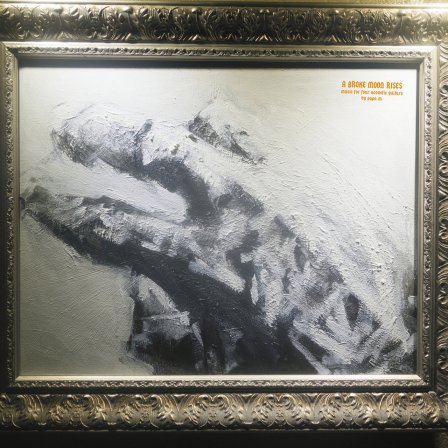Then as now, Dave Pajo has always displayed a quietly distinct grace, with sonic ingredients on the bleeding edge of spare/blank. Originally released as a single (with his perfect cover of The Misfits’ “Last Caress” on the B-side), “Vivea” betrayed a still, delicate, patient, and infinitely tender soul, smoothly poured into the skeleton of sad folk progression. The lack of vocals also rendered the material more essential, even in the full swing of that trend in the mid 90s-mid 00s. There is a casual, conversational approach to most of Pajo’s Papa/Aerial M output. Even when vocals emerged (“Lay” is an early highlight of this), the recordings still had that room’s-width intimacy, both cluttered and carefully arranged. As illustrated by winning Papa M 2004 comp A Hole of Burning Alms, the charm of these meditative figures lies in their raw, almost incidental-seeming presentation. This homespun feel has only added to their staying power and mystique, not unlike Robert Pollard or Kim Deal at their best.
Of course, going home again is a bad idea. This has been empirically proven and re-proven, and many of us are working on the post-re-prove re-proving at this moment. However, judgments on what constitutes the phenomenon have been overzealously superlative. Sometimes an old sound is just a sound. A confluence of vision and technique that dies hard. That maybe wasn’t meant to die at all. This anxious wonder-imbued sound never really ended. It nestled in a beloved, dependable pocket of its own design and has now reemerged in 2018 with a classic 5-track, album rock format and that sneakily palpable emotional resonance intact. The only vocal present is Pajo going “fuckin’ hell” in muted exasperation at the end of seven-minute workout “A Lighthouse Reverie.” It’s unclear why, as there are no glaring mistakes apparent. Maybe it’s because the progression gave him too much of that “guy who was in Slint” (an ad-libbed vocal he used when I saw him back on the Whatever, Mortal tour) feeling?
His first newer release (2016’s Highway Songs) had shades of that old charm, but this one feels much more like a properly realized record, immersively adrift from its brittle start to its impossibly fragile Arvo Pärt-covering finish. In the folds of these careworn minor minuets, one can conjure gentle waves lapping the shore or experience it as healing. Their sadness doesn’t accost you like a bellowing Warren Ellis (nothing wrong with that, for the record) and it doesn’t glaze one over either, like your garden variety cold grey post-rock wet noodle. The minimalist stakes ratchet at every turn, unabashed melodic beauty always beaded with the sweat of intent focus and feel, grappling for balance.
It should go without saying, but it perhaps bears mentioning that it is a fine and reassuring notion to have Dave Pajo still with us making the world so much more worth being in. A Broke Moon Rises isn’t pastoral like Bon Iver, and it doesn’t trade in the woe, guts, and glory of an Explosions in the Sky. It’s folk rock as an aging human in all its requisite fallibility and disgrace, pushing through torrents of doubt and disillusionment to a place where their essential spirit can take wing. Not to be “above,” but among. For the basic, perfect, and evergreen thrill of glancing back while flowing forward.
More about: Papa M




